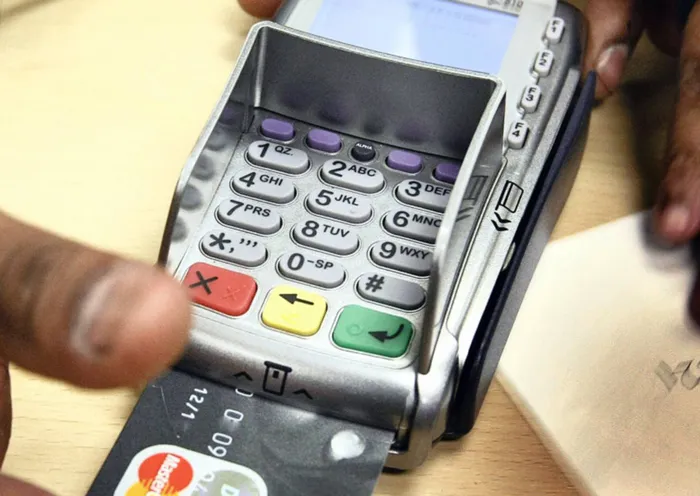South Africa's economic growth faces severe challenges as productivity stagnates
ECONOMY

A report by the Bureau for Economic Research (BER) released on Monday said that South Africa’s economic growth has deteriorated significantly in recent years.
Image: Simphiwe Mbokazi/ Independent Newspapers
A new report by the Bureau for Economic Research (BER) on Monday said that South Africa’s economic growth has deteriorated significantly in recent years. Economists have echoed similar sentiments.
The report said that South Africa experienced a remarkable economic growth deterioration between 2005 and 2025. “This report uses a growth accounting framework to show that productivity shrunk and investment stagnated. Post-pandemic, productivity has recovered but not investment.”
The report added that in short: a collapse in productivity growth led by inefficient state-owned enterprises which consumed a large share of savings without any benefit to the economy. “This largely reflects the impact of South Africa’s state-capture decade, in the years after 2010. This crowded out private sector investment, which has remained stagnant in real terms at around R500 billion a year - far too little to support a meaningful and much-needed expansion of the capital stock. In addition, fiscal policy directed resources to unproductive uses and tax rates rose further, dampening growth.”
The report said that faced with an inflationary environment, the real interest rate increased which meant there could be little growth support from monetary policy. “Investment growth has been negative during 2024 to 2025. The total capital stock grew by an average of 0.4% between 2022 and 2024.”
The report added that the 1994 policy choices hold lessons for 2025. Indeed, from 1994 to 2004, growth accelerated from near zero to 5%. “Those policy choices included the significant restructuring of state-owned enterprises (including the privatisation of Telkom), opening up of the economy to support the improved competitiveness of manufacturing, and fiscal and monetary policies that focused on (and delivered) fiscal sustainability and lower inflation.”
The report said restructuring state-owned enterprises should be a priority. “This will support private sector investment growth and bring a range of interlinked benefits and buoy growth. Delays in long-needed reforms to state-owned enterprises (particularly Eskom and Transnet) have delayed growth.”
The report added that clear monetary and fiscal policy would also support growth. “The inflation targeting framework has brought certainty to monetary policy. Fiscal policy recently turned a corner, achieving a small primary surplus in each of the last two fiscal years. This should be locked in and a shift to a debt stabilising primary surplus together with a clear point target for monetary policy will support lower long rates.”
Growth can return with the right policies, the report said. “The post-1994 period highlights that South Africa has previously grown at an accelerated pace. In 2024, the BER undertook an extensive “what-if” scenario of accelerated reforms and increased investment. While our view has been tempered by a difficult start to 2025 (both internationally and domestically), we remain of the view that accelerated investment, on the back of a strong reform push, could see potential growth creep over 2% and towards 3% within three to five.”
The report added that South Africa’s economic growth slowed significantly from 2010. “2015-2019 was one of the slowest five-year periods in South Africa’s history, with real GDP growth averaging just 1.0%. Per capita GDP contracted by 2.7% from R80 191 in 2013 to R78 061 in 2019. The BER estimates that potential GDP growth declined over the same period from around 2% a year to zero.”
The report said power shortages (load-shedding) in the past have significantly constrained South Africa’s economic performance (Walsh et al. 2021) and have likely structurally reduced South Africa’s potential growth rate. “While load-shedding was relatively mild until 2020, peaking in 2023, it has impacted economy-wide productivity since it started. There has been a notable and significant stagnation in two key areas of logistics: ports and rail performance. In more recent times (mid-2025), on the back of the government’s reform programme, there has been a welcome improvement in port capacity.”
Unisa economist Dr Eliphas Ndou said the prolonged downgrading of South Africa's long-term foreign currency credit ratings since 2012 contributed to significant crowding out of investment and this led to a massive slowdown in economic growth. “This happens via the increased risk profile of South Africa which results in high debt servicing costs leading to diversion of funds in the budget to interest rate payment rather than raising infrastructure spending. In addition, the persistent exchange rate depreciation post-2008 did not raise exports; rather it contributed to the weakening of capital formation and slowdown in economic growth.”
Efficient group economist Dawie Roodt said South Africa’s growth trajectory has deteriorated significantly in recent years. “The outlook is not good and on a per capita basis we have been getting poorer and poorer. Unfortunately, we have the wrong policies and corruption has resulted in weak economic growth and an increase in unemployment and poverty.”
BUSINESS REPORT